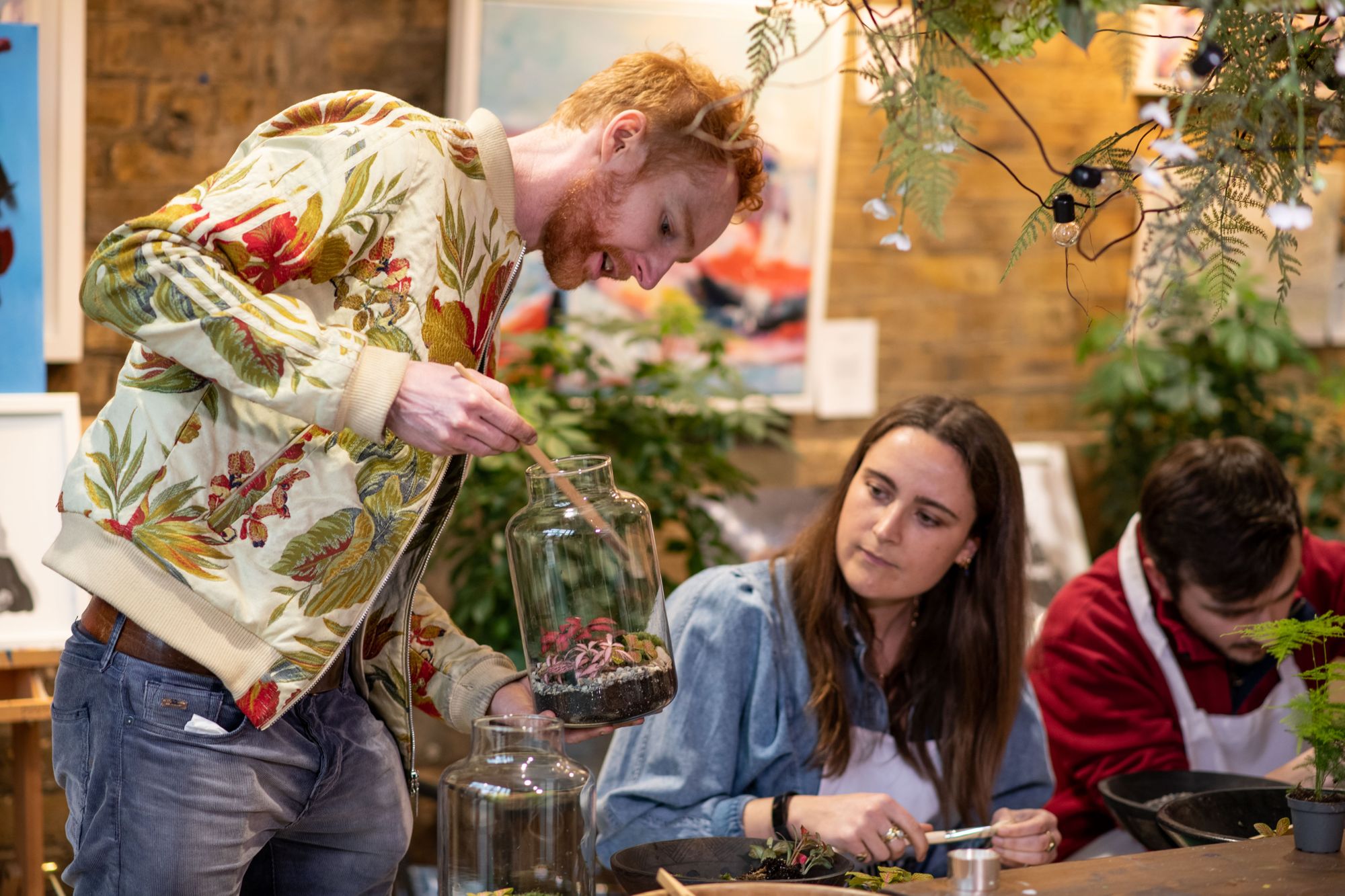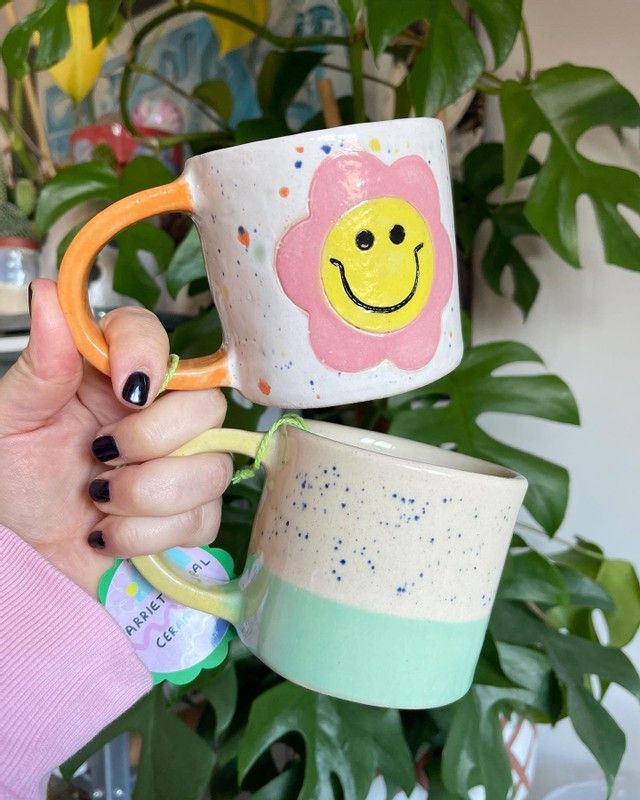Adopted by the United Nations 2012, the first ever International Day of Happiness was held in 2013 and is observed every year on the 20th of March. Organised by non-profit Action for Happiness, a collective of members from over a 190 countries, they believe that we should all work together to "create a happier and kinder world." Action for Happiness believe that happiness and kindness should influence how we approach everything in our lives, and that it should shape our views on policies which can help prioritise the wellbeing of future generations to come.
In 2021, the annual World Happiness Report - which focused on the effects of the pandemic on our happiness - found that the U.K had fallen 5 places in their global happiness ranking; ending up 18th. Researchers argued that they felt mental health had been one of the "greatest casualties" of COVID-19, with women and young people most likely to be affected.
Scientists have studied happiness for over 2,500 years, with historic philosophers such as Confucius, Socrates, Aristotle and Buddha seeking to discover what it means to be truly happy. In more recent studies, scientists have found that that being happy is often linked to a longer life expectancy, and fewer health issues such as high blood pressure and heart problems.
Whilst we know it might be hard to find the happiness around us right now, with global crises and the effects of the pandemic still with us, here at Obby we taken cues from Action for Happiness' "10 Keys to Happier Living" to help give you some ideas of how to find small moments of joy in our everyday lives.
1) Trying Out: Keep Learning

We might be a little biased, but this our favourite tip out of the 10 Keys to Happier Living! Learning new things and being open to new experiences can have a significant impact on our happiness and wellbeing.
Whilst many of us associate learning with ridgid, curriculum-set education, it's important to know learning is something we can all continue on throughout our lives. In the short-term, learning allows us to do something we find enjoyable and sparking our curiosity and interests. Looking to the longer term, benefits of learning include finding new perspectives that help us in all areas of our lives, from kickstarting creativity to help us find new ways to solve problems. Learning at any age has been shown to generate new brain cells, and has been associated with staying happier and healthier well into old age!
Here at Obby, we're all about experiencing the joy of learning and remaining curious. From pottery to painting, sewing to terrarium making, we offer over 3,500+ unique experiences offered by teachers local to you; so you can get learning on your terms.
Learn something new with Obby2) Awareness: Living Mindfully

In our ever-connected, forever-busy lives, making sure to keep time for ourselves is incredibly important. As we try to balance work or studies, home life and looking after others; often the first thing we neglect is ourselves. Often, we experience life on autopilot, moving through the motions of our everyday routines; by incorporating mindfulness into our lives, we're able to take a step back and evaluate what it is we're truly feeling.
Well, what exactly is mindfulness you might be asking? In essence, it means practicing the ability to be fully present in a moment. That means we are actively choosing where to place our attention, whether that be focusing on our body and breath, or the thoughts we're having and the sounds around us, we're not allowing ourselves to be distracted by whatever else is going on right now. Staying in the moment, and not letting thoughts drift to the past or future, is also a key part of staying in the mindfulness mindset. Not letting any negative thoughts impact our outlook, as we stay grounded in the moment, allows us to be kinder to ourselves and those around us.
3) Giving: Spread kindness to those around you!

A great way to bring happiness to those around us, whilst boosting our own, is by helping others. Whether it helping your loved ones, those in your community, or even someone you don't know, studies have shown that when we do kind things for others it can boost our own brains; lighting up its 'reward centre' and helping us to feel good.
Whilst most people think of helping others through donations to causes that need it, your acts of kindness can be as big or small as you like! From offering a friendly smile to a stranger on your morning commute, to regularly volunteering in your local community, whatever feels comfortable for you can make a huge difference.
Everyone can benefit from an act of kindness, with studies showing that when we do something nice for those around us, they and those who witness it are more likely to be kind themselves! So next time you're thinking about whether to make that compliment, remember that if you do, you're helping to make the world a happier and kinder place; one act of kindness at a time.
4) Relating: Connecting with Others

Our happiness is mostly determined by our close relationships. Having people - such as friends and family - we trust, can rely on, and who help us feel appreciated, encouraged, or loved positively impacts our wellbeing and resilience, according to studies. It can make us less prone to depression and other illnesses, and even help us recover more rapidly!
When we are understood, validated, and cared for, we feel close to people. This allows us to feel recognised and accepted for who we are — our talents and shortcomings, goals, concerns, and needs – even if others don't agree.
A great place to start connecting with others is by simply giving the other person our full attention! Focussing on them and what they are communicating, rather than focusing on your latest notification or rehearsing what you're going to say. When you’ve listened, ask them a few questions that come to mind now you've heard their feelings, and show them that you've understood what they're going through.
If you're looking to not just nurture old connections but start new ones, our blog listing the Top 10 Things to Do at the Weekend to Make Friends is a great place to start.
5) Resilience: Getting Back Up Again

We all face disappointments and stressors in day-to-day life, as well as larger life changes and overarching obstacles. All of us will be affected by traumatic events in our lives; whether it be the death of a loved one, the loss of a job, an accident or illness. When we face this kind of adversity, being resilient does not mean we don't ever feel emotions such as pain, upset, hurt, sadness, fear, or anger. Being resilient means that we learn to cope with those feelings, accept whatever it is that has happened, adjust and move forward.
We may not always be able to predict or control what life throws at us, but there is always something we can try, no matter how small it may feel. Being able to recognise that is the first step to using active coping - when a person directly works to control a stressor through appropriately targeted behavior, embracing responsibility for resolving the situation.
By trying to do something (even if it's a small action), instead of wallowing in our helplessness, allows us to better cope, find and sustain hope, and feel a sense of accomplishment in how we reacted. We may feel powerless when we are going through a difficult time, but no matter what the situation, there is virtually always something we can try to help ourselves thrive and overcome our problems.
Need more advice?
Hopefully, these ideas on how to boost your happiness on this year's International Day of Happiness. If you're still looking for inspiration, be sure to take a read of some of our other amazing guides and best round-ups below. We're sure you'll find something useful, oh - and don't forget to share the love.
- The Best Classes for Your New Year’s Resolutions | What to Learn in 2022
- Top 8 Classes To Enjoy On World Wildlife Day (2022)
- Top 10 Best Chocolate Making Classes In the UK
- 5 Best Web Templates For Counsellors
- 10 Activities To Do in London On National Unplugging Day (2022)
- Top 7 Best Jewellery Making Classes in Bristol

